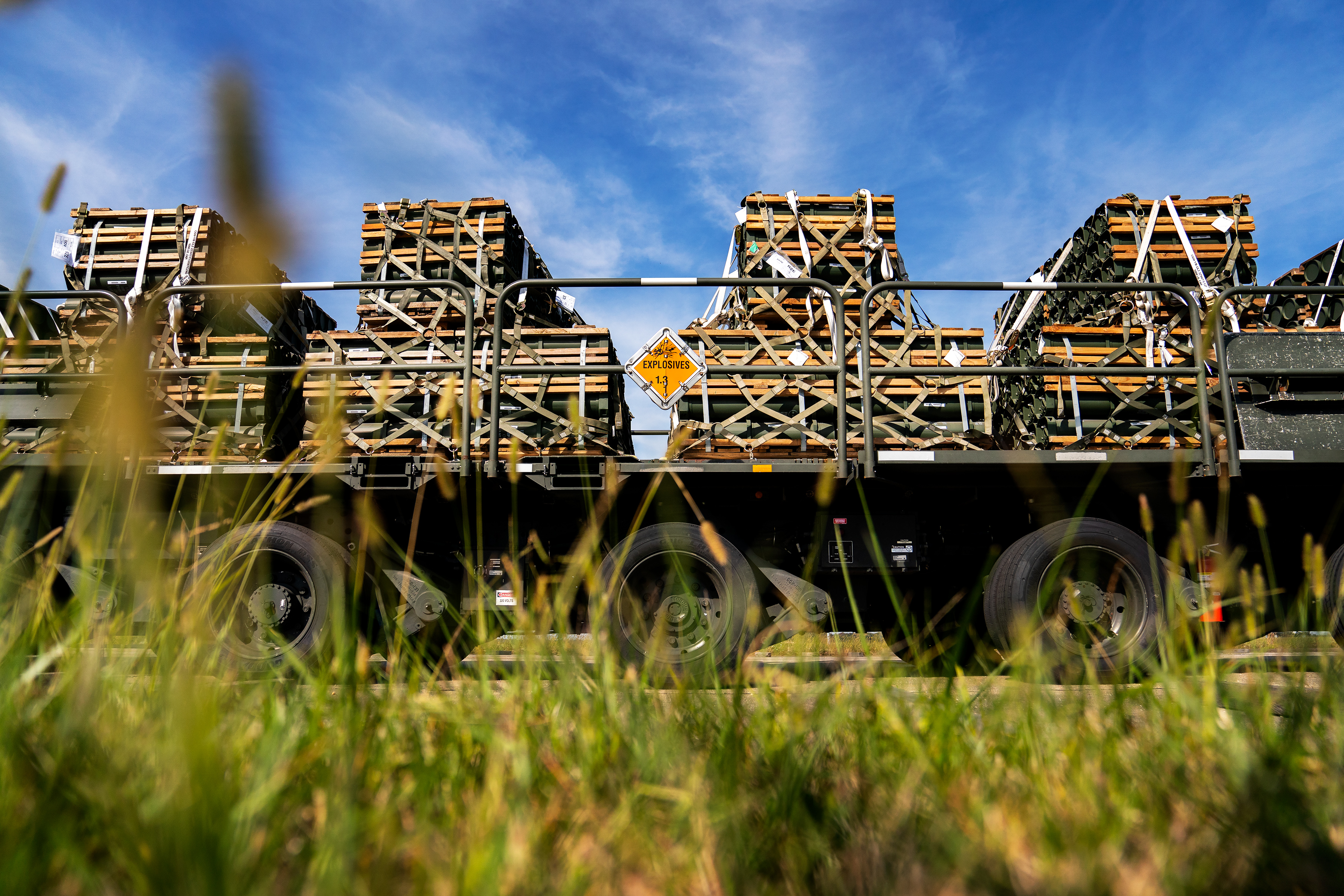Is the U.S. running out of ammunition?
Why war with Ukraine may leave America underprepared for a China conflict


A free daily email with the biggest news stories of the day – and the best features from TheWeek.com
You are now subscribed
Your newsletter sign-up was successful
Ukraine is using a lot of ammunition in its fight against Russia — up to 6,000 artillery shells every day. The result? Munitions stocks among the country's Western suppliers are starting to run low. That might be about to change. Polish and European Union officials met Monday to discuss a new $2.2 billion program that would "supply Ukraine in its war against invading Russian forces and to replenish Europe's dwindling stocks," The Associated Press reports.
But Europe isn't the only place where ammunition and other critical military supplies are in short supply. "What the U.S. has been able to do is use a range of its stockpiles of weapons," to supply Ukraine, Seth Jones of the Center for Strategic and International Studies (CSIS) tells PBS NewsHour. Now, though, the "number of those stockpiles are now decreasing."
Indeed, The New York Times reports that American efforts to supply Ukraine have left the military low on artillery shells and other "more sophisticated" weapons, exposing fault lines in how the U.S. military prepares for its own wars. America's armed forces are "watching … stocks of some key weapons dwindle," the Times reports — the result of "industry consolidation, depleted manufacturing lines and supply chain issues" that have become more critical while war rages in Europe, and as a potential conflict with China looms.
The Week
Escape your echo chamber. Get the facts behind the news, plus analysis from multiple perspectives.

Sign up for The Week's Free Newsletters
From our morning news briefing to a weekly Good News Newsletter, get the best of The Week delivered directly to your inbox.
From our morning news briefing to a weekly Good News Newsletter, get the best of The Week delivered directly to your inbox.
What are the commentators saying?
The first worry for Western officials, of course, is keeping Ukraine in the fight. "Ammunition availability might be the single most important factor that determines the course of the war in 2023, and that will depend on foreign stockpiles and production," Rob Lee and Michael Kofman wrote in December for the Foreign Policy Research Institute. The Ukrainians have outfought the Russians, but they depend on the West to ensure that advantage continues: "As long as Ukraine continues to receive sufficient ammunition, particularly for artillery, and spare parts, it stands a good chance of retaking territory."
At War on the Rocks, scholars Vasabjit Banerjee and Benjamin Tkach suggest the bigger concern is a possible war in the Pacific. The Ukraine supply effort "is a precursor of industrial limitations that may hamper U.S. military effectiveness if engaged with an adversary, such as China, that inflicts severe equipment and personnel losses." That means it's time to ramp up production: "Whatever contingencies may arise in the future, Washington will want to have enough ammunition for them."
But Maiya Clark of the Heritage Foundation suggests the United States can't just turn a switch: "Once the stockpiles are expended, the Department of Defense cannot simply buy more munitions — manufacturing takes years." Yes, defense planners must build a new, larger stockpile of ammunition, but to do so "contractors need time to expand their production facilities, hire more workers, and obtain more components from their suppliers."
What's next
The West isn't the only side of the Ukraine conflict with ammunition problems. Earlier this month the head of Russia's Wagner mercenary group expressed concerns about munitions supplies, The Guardian reports. "I am worried about ammunition and shell shortages not only for the Wagner private military company but for all units of the Russian army," said Wagner's Yevgeny Prigozhin, though he also said ammo is now being produced "in huge quantities." (The Jerusalem Post reports that Russia's ammunition shortage has forced its fighters to go to battle only with "firearms and shovels.")
A free daily email with the biggest news stories of the day – and the best features from TheWeek.com
But it's China that is always on the minds of American war planners. CSIS recently ran a war game to imagine a possible U.S.-China confrontation. The conclusion? America would run out of some munitions, quickly. "This would occur in less than one week in a Taiwan Strait conflict." The think tank concluded that "the U.S. industrial base is not prepared for a possible conflict with China."
That may change. The U.S. is working to quickly rebuild its ammunition stockpile. The New York Times adds that the Pentagon is increasing its procurement budget and working to solve supply bottlenecks. It's also changing its approach, "abandoning some of the cost-cutting changes embraced after the end of the Cold War, including corporate-style just-in-time delivery systems and a drive to shrink the industry." It's a big effort, PBS reports: "Overall, the Army hopes to increase artillery production 500 percent in the next two years, the largest production expansion since the Korean War."
Joel Mathis is a writer with 30 years of newspaper and online journalism experience. His work also regularly appears in National Geographic and The Kansas City Star. His awards include best online commentary at the Online News Association and (twice) at the City and Regional Magazine Association.
